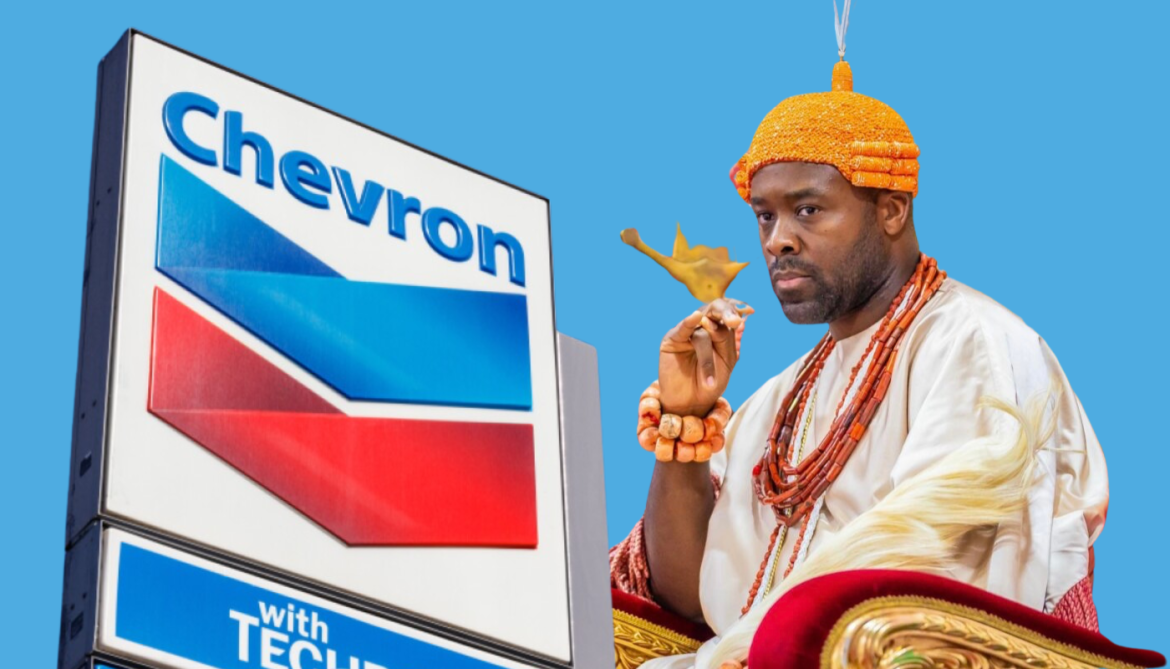KEY POINTS
- Chevron Nigeria workers staged a peaceful protest over unmet welfare agreements, seeking Olu of Warri’s intervention.
- Employees cited decades of hazardous work without medical insurance, calling for salary reviews, bonuses, and conversion of contract staff.
- Workers urged the Senate to join forces with the Olu to press Chevron into honoring commitments to host communities.
Workers at Chevron Nigeria Limited’s onshore and Escravos facilities staged a peaceful protest this week, urging the Olu of Warri, Ogiame Atuwatse III, to step in after repeated failures by the oil giant to honor agreements on staff welfare.
Gathering outside company sites in Delta State, the indigenous employees said they had lost confidence in Chevron’s willingness to keep its word after multiple rounds of dialogue.
The group submitted an appeal to the Olu, asking him to deploy his influence as traditional custodian of the host communities to forestall a full-blown crisis.
Chevron Workers List Decades of Unmet Demands
Protesters said the grievances go back more than thirty years, during which they claim to have supported Chevron’s operations under hazardous conditions without the safety nets accorded to direct employees.
They highlighted the absence of health and medical insurance, a gap they say has left many vulnerable despite years of service.
The demands presented include a new salary structure with fixed paydays, severance and retirement allowances, monthly medical stipends, daily transport support, 13th-month bonuses, production incentives, and three meals per day for workers on site.
The protesters also called for at least 70% of contract workers from host communities to be absorbed as direct staff and included in annual technical and safety training.
“Despite our sacrifice, we have been denied even the most basic health protections,” one of the workers said during the protest. “We are not asking for charity, but for the fulfillment of agreements already signed.”
The appeal has widened beyond the palace of the Olu. Workers also urged Senator Joel Thomas, who represents Delta South and chairs the Senate Committee on Local Content, to intervene jointly with the monarch to compel Chevron to act.
The mounting tensions reflect a familiar struggle in Nigeria’s oil belt, where community workers frequently accuse multinationals of neglecting local labor while reaping vast profits.
Though the protest was peaceful, workers warned that the situation could escalate if Chevron does not move quickly to resolve the dispute.



